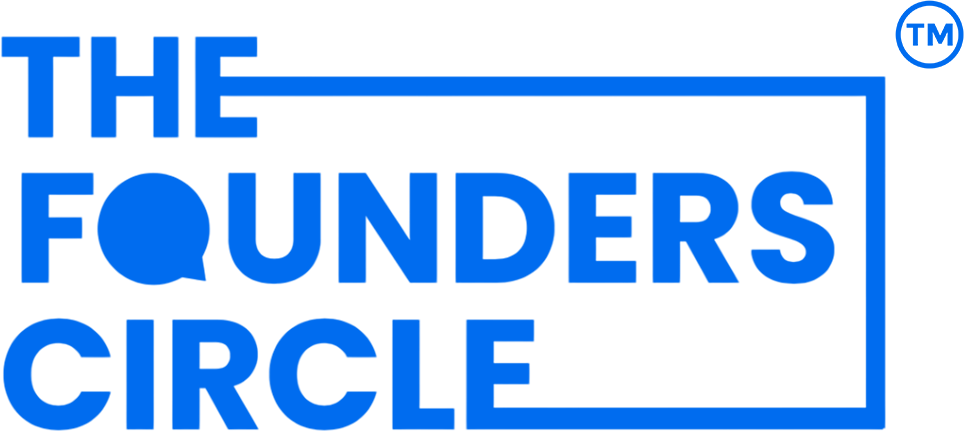The Best Habits of Successful Startup Founders

In the ever-evolving startup landscape, the journey from idea to impact is rarely a straight line. Many people have great ideas, but few transform them into thriving businesses. What truly distinguishes winners from strugglers is not luck—it’s the mindset, consistency, and habits that successful founders build over time.
Whether you’re launching your first venture or trying to scale an early-stage startup, adopting these eight powerful habits can radically change your trajectory.
1. They Lead with a Clear and Purpose-Driven Vision
One of the most defining traits of successful founders is their ability to articulate a bold, clear vision. It’s not just about building a product—it’s about solving a real-world problem that matters. This vision serves as their north star, guiding tough decisions, motivating the team, and helping them stay focused amidst distractions.
Think of founders like Brian Chesky of Airbnb or Elon Musk of SpaceX. Their companies weren’t built on trends—they were anchored in a larger purpose that inspired people to believe in something bigger than themselves.
If you’re a startup founder, invest time in refining your mission. A strong vision isn’t just motivational—it’s strategic.
2. They Make Learning a Daily Habit
In the startup world, stagnation is a silent killer. Successful founders are lifelong learners. They stay humble, seek out feedback, and consume knowledge relentlessly—whether through books, podcasts, or conversations with other entrepreneurs.
More importantly, they are not afraid to say, “I don’t know.” They embrace the fact that surrounding themselves with smarter people is a strength, not a weakness. They absorb criticism, adapt quickly, and iterate based on what they learn.
Instead of being driven by ego, they’re driven by growth. That mindset is what allows them to evolve faster than the competition.
3. They Treat Time Like Capital
For successful founders, time is one of the most valuable currencies they have. They manage it with the same level of discipline they apply to budgets and investments.
Rather than filling their day with endless to-do lists, they prioritize high-leverage activities—like product innovation, customer validation, and team building. Techniques such as time-blocking, the Eisenhower Matrix, and weekly reviews help them stay intentional with how they spend every hour.
In startups, speed matters. Every minute spent doing low-value work is a minute lost on building traction or solving real problems.
4. They Are Deeply Customer-Obsessed
No startup can survive without customers. Successful founders are obsessed with understanding their users—their behaviors, pain points, and unmet needs. They’re constantly engaging with feedback, analyzing data, and using insights to improve their product.
Take Jeff Bezos, for instance. Amazon’s entire strategy was built on one principle: customer obsession. From UX to delivery, every decision centered around making the customer experience better.
If you want to scale a successful startup, make your customer the hero of your story. Listen more, assume less, and keep iterating.
5. They Build Resilience as a Core Strength
Every entrepreneurial journey is filled with rejection, setbacks, and moments of doubt. What separates successful founders from the rest is their ability to stay mentally tough during the hardest times.
They don’t take failure personally—they treat it as feedback. They bounce back quickly, adapt their approach, and keep moving forward with confidence.
Resilience isn’t just emotional—it’s strategic. When you stay calm and focused under pressure, you make better decisions and inspire confidence in your team and investors.
6. They Are Magnetic Storytellers
Founding a startup isn’t just about building tech—it’s about telling a story that others want to be part of. Successful founders are excellent storytellers. They know how to pitch a vision that resonates, explain their value proposition simply, and rally people behind a cause.
Whether it’s a 60-second elevator pitch or a detailed investor deck, they tailor their messaging to their audience and communicate with passion and clarity.
Storytelling builds trust, raises funds, attracts talent, and engages customers. It’s a soft skill that leads to hard results.
7. They Build Strong Company Cultures Early
Culture is the invisible force that defines how people work, communicate, and collaborate. Successful founders don’t leave culture to chance—they shape it deliberately from the start.
They define their values early, hire people aligned with those values, and model the behaviors they want to see. Whether it’s transparency, accountability, or curiosity, they lead by example.
A strong culture creates team loyalty, faster decision-making, and fewer internal conflicts. It’s the foundation for scaling sustainably.
8. They Execute Fast and Embrace Imperfection
Execution eats ideas for breakfast. Successful founders know that launching fast and learning in the real world beats building in a vacuum. They embrace the MVP (Minimum Viable Product) philosophy and ship quickly, even if it’s messy.
As LinkedIn co-founder Reid Hoffman put it, “If you’re not embarrassed by the first version of your product, you’ve launched too late.”
They focus on speed, iteration, and data-driven decisions—not perfection. It’s better to have a flawed product in the hands of users than a perfect one stuck in development.
Final Thoughts
Being a successful entrepreneur is not about having the next billion-dollar idea—it’s about consistently applying the right behaviors. The world’s most successful founders didn’t get there by chance. They adopted habits that helped them think clearly, act decisively, and grow relentlessly.
From customer obsession and storytelling to resilience and execution, these eight habits form the backbone of startup success.
If you’re committed to building something meaningful, don’t just focus on what to build. Focus on how to behave. Adopt these habits, learn from those ahead of you, and craft your journey with discipline and intent.
The habits of successful founders aren’t just principles—they’re practices. Make them yours.

